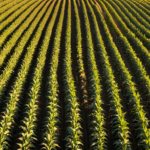Scientists have been left astonished after a species of moss survived nine months on the exterior of the International Space Station (ISS), showcasing an incredible resilience to harsh space conditions. The discovery could pave the way for future space gardens and support long-term human habitation in outer space.
Moss Spores Endure Extreme Conditions
The moss spores, which were attached to the exterior of the ISS, endured extreme temperatures, radiation exposure, and vacuum conditions. Upon returning to Earth, 80% of the samples remained viable and capable of growth under terrestrial conditions.
Implications for Space Exploration
This finding is significant as it suggests that certain plants could potentially support human life in space by providing oxygen, food, and psychological benefits. The hardiness of moss spores opens up possibilities for future missions to establish sustainable ecosystems on other planets or moons.






